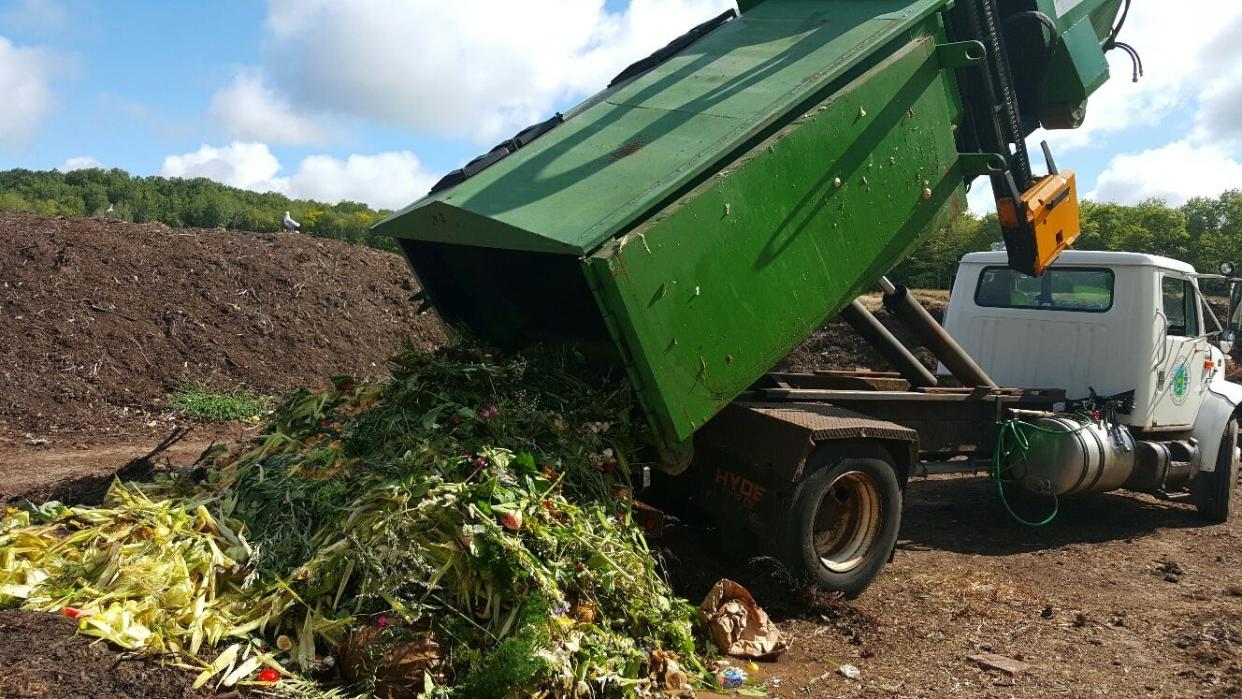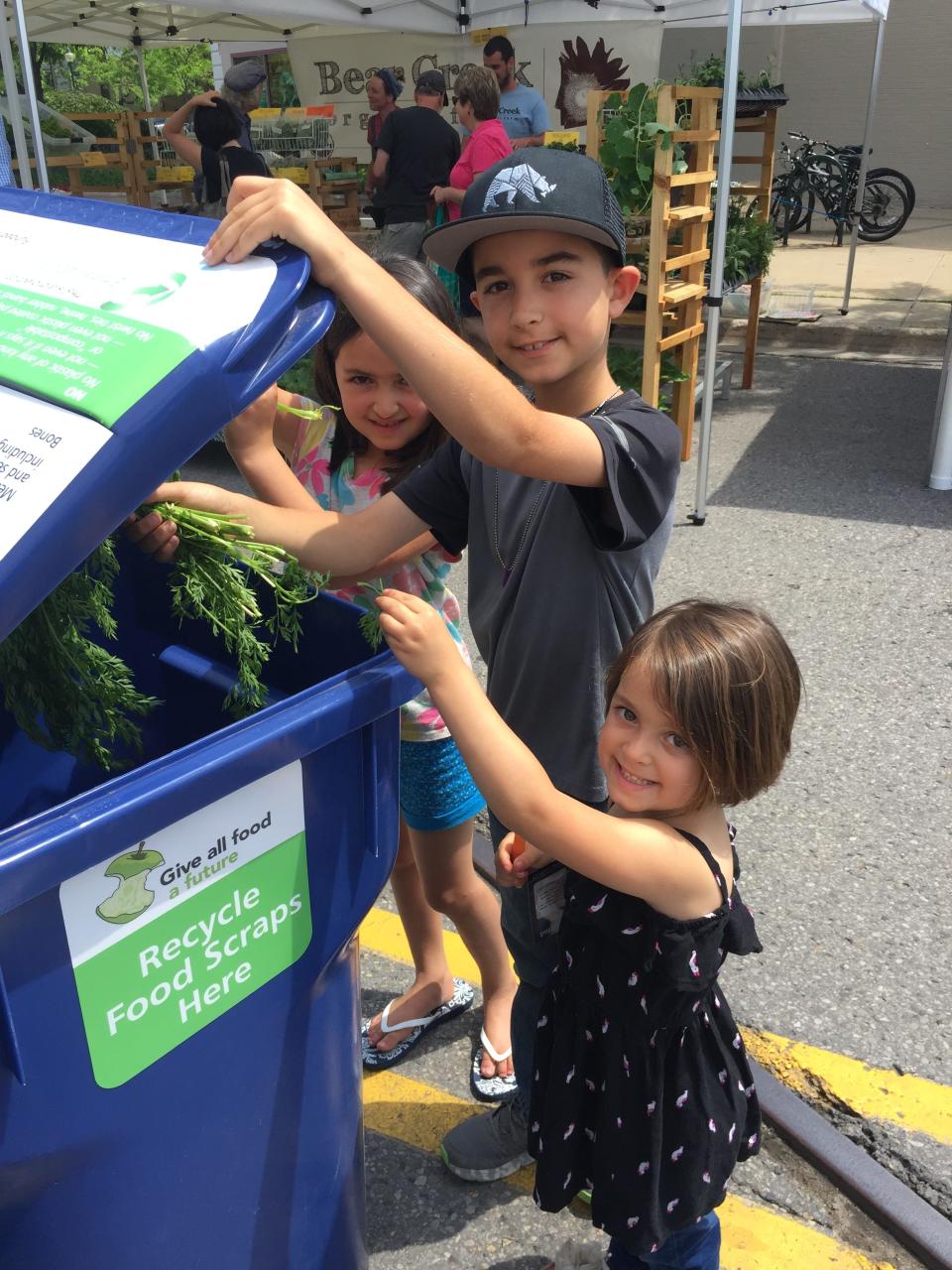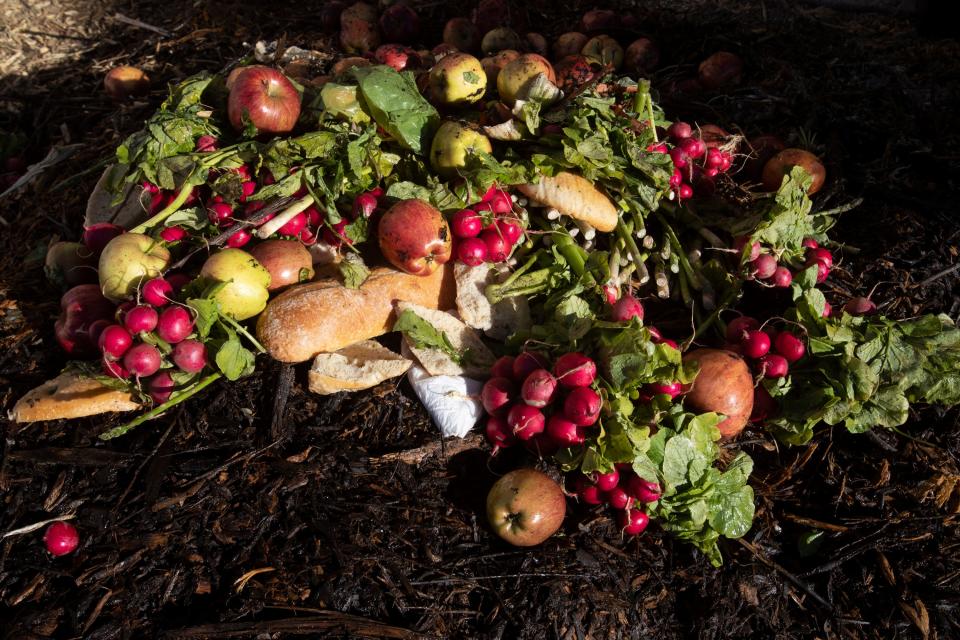Food waste in Michigan increases during the spring and summer

The amount of food that ends up in landfills and compost sites increases during the spring and summer months of Michigan.
There are dozens of landscaping and recycling programs across Michigan with food waste collection programs. Many of these programs see a yearly increase in food waste collection during the summer months from both commercial and residential sources.
Food composting has become more and more popular in recent years as a method of being environmentally friendly.
More: Everything you need to know about composting
"Between 2015 and 2021, 2.77 million pounds of food scraps had been diverted in that seven year program," said Lindsey Walker from Emmet County Recycling.
This increase in food going to compost can be considered a good and bad thing for environmentalists.
Food waste collection programs work by giving collection buckets to commercial groups like restaurants or individuals for their homes. People then take acceptable food scraps that would otherwise go into the garbage and put it in the buckets which are then collected on a regular basis.

The food waste is then turned into compost which can be used to make healthy soil for plants for farmers and gardeners.
When food waste ends up in landfills, it decomposes and releases methane gas which can damage the environment. However, if that same food waste is composted instead it undergoes a process called aerobic composting, which involves pumping air through the waste so it can break down properly.
When waste is composted like this, fewer methane emissions are released into the air which can reduce greenhouse gases in the atmosphere. This means that if more food ends up in compost instead of landfills, it can have a positive impact on the environment.
"All the organics when they get pushed in the landfill they start rotting anaerobically. When they rot anaerobically they start releasing things like methane, bad things for the environment," said Mark Cherry from Country Oaks Landscape Supply in Burton. "So that stuff gets spewed out of the landfill and it gets trapped in the atmosphere."
Increases in the amount of food that end up in compost during the spring and summer seasons isn't always a good thing though, because the amount of compost will drop again in the winter months. This means that when more food ends up in composting sites, the amount of food waste that goes towards landfills also increases.
"Our commercial pickups increase 20 to 25 percent in the spring," said Cherry. "But a majority of food waste still ends up in landfills."

Subscribe: Have access to all of our content
While there is no definitive reason behind why food waste increases during these months, some attribute it to more people choosing to eat out at restaurants, which produce more food waste than an average person.
Some food waste collection centers have also noticed that not just commercial waste increases but residential as well. This would show that not only are people eating out more often but when they choose to eat at home, they are more likely to buy and cook produce. This would mean a decrease in pre-portioned pre-made meals which produce less waste.
"I think when spring comes around people start thinking of making more food like, they start thinking of produce as opposed to the more package prepared foods." said Michael Edwards, a residential compost collector for Country Oaks Landscape Supply. "They think they can have a lot more parties and get togethers too, so we get buckets that all the sudden have a whole bunch of like carrot and potato peels like they've been doing more food prep and cooking,"
Contact reporter Brendan Wiesner at BWiesner@Sooeveningnews.com.
This article originally appeared on The Sault News: Food waste in Michigan increases during the spring and summer

